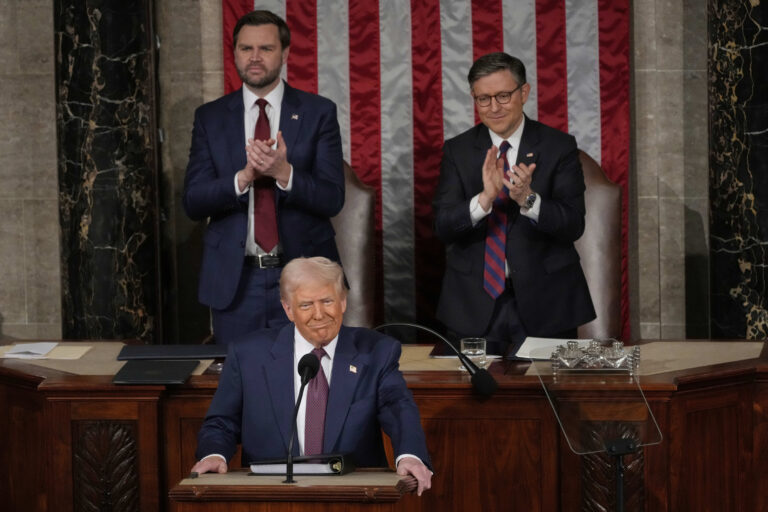 Defense Secretary Chuck Hagel on Thursday defended President Barack Obama’s proposed cuts to the military as the best approach as the Pentagon grapples with smaller, deficit-driven budgets.
Defense Secretary Chuck Hagel on Thursday defended President Barack Obama’s proposed cuts to the military as the best approach as the Pentagon grapples with smaller, deficit-driven budgets.
Dismissing a suggestion that he was Obama’s hired gun to slash the defense budget, Hagel told the House Armed Services Committee that the significant reductions in projected spending was the law long before he took over at the Pentagon six weeks ago.
Hagel said he has to be realistic about the cuts of $487 billion over 10 years that Congress and Obama agreed to in August 2011 as well as the additional, automatic cuts of $41 billion that kicked in March 1.
Rep. Mac Thornberry, R-Texas, said the widespread view was Hagel was tapped for the top Pentagon job to cut the defense budget.
“The cuts you’re talking about occurred long before I got here,” Hagel told the panel. “As to my responsibilities … (it’s to) lead, preside over an institution with only one mission to secure this country. … Yet part of my job is to manage.”
The Pentagon chief said Obama’s instruction to him “wasn’t to cut the heart out of the Pentagon.”
Hagel faced resistance from some in Congress to proposals in the $526.6 billion Pentagon budget for fiscal 2014 that calls for another round of domestic base closings, increases in military health care fees and a smaller pay raise of 1 percent for personnel.
Hagel called the base closing system “imperfect,” but argued it was a “comprehensive and fair approach” that will result in considerable savings in the long term. He insisted that the Pentagon needed to address increasing costs of personnel benefits and excess installations to ensure that the military could carry out its mission.
He said the department is undergoing a far-reaching review to be completed by May 1 and indicated that further cuts are possible.
The hearing marked Hagel’s first trip back to Capitol Hill since his bruising Senate confirmation fight in February.
In a time of fiscal austerity, tea party figures and other conservatives have clamored for significant cuts in spending as the federal government grapples with a nearly $1 trillion annual deficit. Yet they’ve rejected cost-cutting changes envisioned by the Pentagon, including domestic base closings, an increase in health care fees for military retirees and the cancellation of some weapons.
The Pentagon is trying again with the new budget, seeking another round of base closings in 2015, requesting the retiree health care fee hike and proposing to terminate a version of the Global Hawk unmanned aircraft.
In fact, the budget proposal reflects a degree of wishful thinking on the part of the Pentagon. It ignores the automatic, across-the-board budget cuts that the military is dealing with daily.
The proposal calls for a base Pentagon budget of $526.6 billion — $52 billion more than the $475 billion level established by the spending cuts set in the budget agreement between Obama and congressional Republicans in August 2011. Fiscal conservatives have accepted the cuts as a sure-fire way to reduce the federal deficit, and they have shown no inclination to abandon the cuts despite the outcry of defense hawks and senior Pentagon officials who fear an erosion of U.S. military might.
The budget plan also includes an $88.5 billion placeholder for additional war costs in Afghanistan as Obama decides on the pace of the drawdown of American combat troops next year and the eventual size of the residual force after December 2014. The administration likely will submit a war cost request in late April or early May.
Obama’s budget reflects the end of more than a decade of conflict in Iraq and Afghanistan and the military’s strategic pivot to Asia as a nuclear North Korea increases its belligerence and China builds up its forces. The cuts now envisioned come affter years of robust budgets.
Instead of the across-the-board cuts of some $500 billion over 10 years, the administration is proposing $150 billion in additional defense savings over a decade, though Hagel said the reductions wouldn’t occur until “beyond fiscal 2018.”
The reductions, however, can’t alter one reality: The United States spends more on defense than the next 16 largest militaries in the world combined.
Congress has complained that the initial cost of shuttering installations is too high, despite projected long-term savings. In response, the Pentagon is seeking $2.4 billion over five years to cover the upfront expenses.
The president’s defense proposal also calls for an increase in fees for health care. The overall program costs around $53 billion a year and represents 10 percent of the defense budget. Congress, with the backing of veterans’ groups, has resisted significant changes in the fees for a program that covers nearly 10 million active duty personnel, retirees, reservists and their families.
The Congressional Budget Office estimates the cost of the program could reach $65 billion by 2017 and $95 billion by 2030.
(AP)











One Response
We’ve had hamsters smarter than this yutz. What an embarrassment. No wonder our enemies are threatening us.